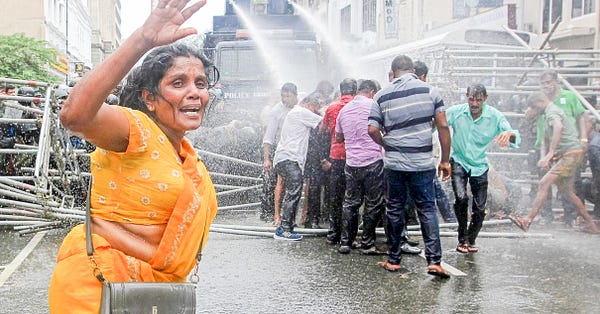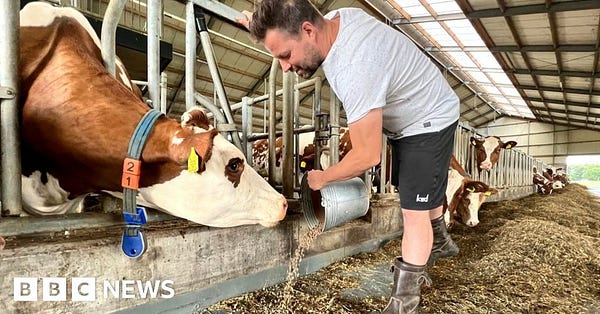Get the “Experts” Out—Let the Farmers Do Their Jobs
Everyone loves an expert. Or do we? Do we allow unelected “experts” to determine what we can do in our daily lives and career fields out of trust or laziness? How many times have we seen well-intentioned “expert opinions” introduce terrible ideas that inform policies and ruin people’s livelihoods? When is it appropriate to step back and simply let people do their jobs?
Take the Davos Forum, for example. What may have started as a well-intentioned gathering of economists, political scientists, physicists, and policy commentators to brainstorm practical solutions to real problems has become an annual meeting of the who's-who, the “experts”. They meet at a fancy resort in the Swiss Alps and discuss six key themes from “safeguarding the climate” to “harnessing the power of the fourth industrial revolution”.
The decisions made at this conference directly affect how you and I live our lives, down to what food we have access to in our grocery stores. The radical form of environmentalism they’ve been cheerleading might sound appealing on the surface, but its application to policies has actually sapped farmers’ ability to grow food. Is that a cost we’re willing to accept?
Are you familiar with the Davos Forum? Are there other “expert” conferences that you’ve seen positively or negatively affect your community’s livelihood? Are there certain decisions made for the “global” good that are worth the sacrifice of national liberties or local prosperity? Let us know your thoughts in the comments, or tag us in a story on Instagram.
Let’s look at Sri Lanka, a former agricultural powerhouse famous for exports of its unique tea. That is, until its president, Gotabaya Rajapaksa, decided in 2021 to force farmers to “go organic” and abandon the chemical fertilizers that made their farming success possible.
What do you think the results were? Food prices and inflation both skyrocketed in Sri Lanka. The country went from self-sufficiency in rice production to spending $450 million to import it. Desperate citizens eventually swarmed the presidential palace, forcing President Rajapaksa to flee the country. Was “going organic” the problem? Or was it the way the Sri Lankan government went about it? Was reaching an expert’s ideological goal worth the resulting crisis and political chaos?


How about The Netherlands? This “tiny country that feeds the world” is the second-largest agricultural exporter by value following the U.S., yet it may soon have trouble feeding itself. Earlier this year, the Dutch government committed to ideological environmental goals, acknowledging yet consciously dismissing the drastic effect on local farmers who are forced to reduce livestock and eventually shut down their farms. The result? Nationwide protests, higher food prices, and emptier supermarkets both locally and internationally.
How should government leaders take into consideration environmental stewardship? Should they look to ideological experts, or trust the farmers who have been at this for generations?


Let’s consider the United Kingdom, where a movement is attempting to combat climate change by “rewilding” Britain, turning swaths of English countryside into untamed wilderness. This might sound lovely, but what are the challenges? Are Brits willing to sacrifice fertile farmland for this effort in the midst of a food crisis? How will native species respond when new predators are introduced into their rewilded environments? We’ve witnessed the harmful effects of rewilding mismanagement. Is this the best solution the “experts” can come up with, or is it an ideological check box?


There is a difference between environmental stewardship and chasing ideologies. At the heart of caring for the environment, we find the desire to provide a safe, healthy, thriving home for our communities—that includes wildlife and human beings. So is stepping on farmers, blanket-banning long-standing farming practices, and destroying farmland in the midst of a global food shortage good stewardship?
Careful stewardship of the environment and feeding the world’s people are not mutually exclusive. Perhaps someone should let the Davos crowd know that before even more supermarket shelves are emptied. Let’s press pause on the experts’ ideologies and let the farmers do their jobs.



